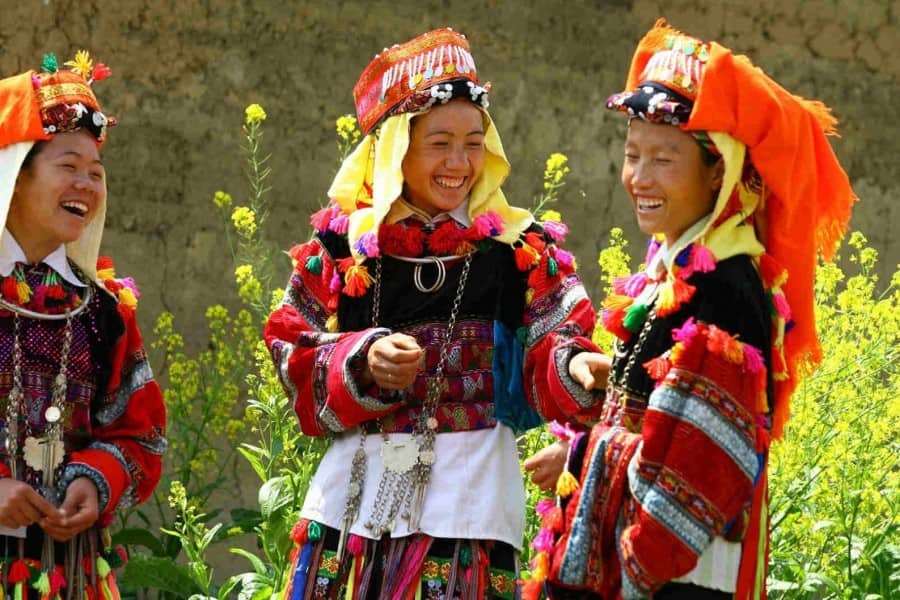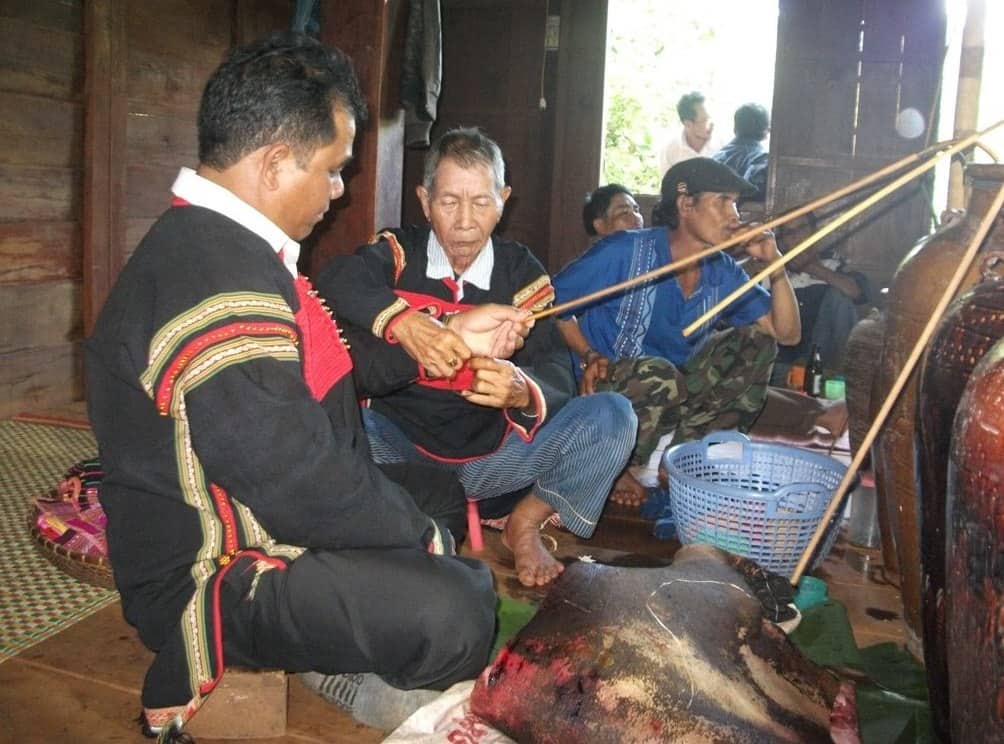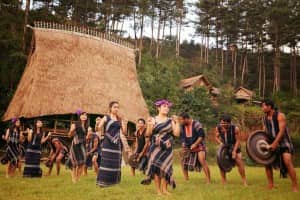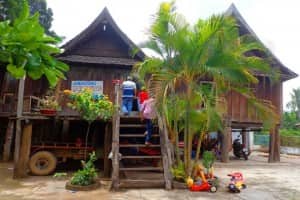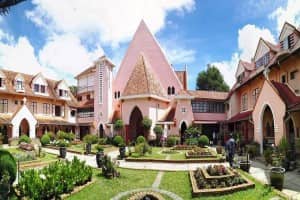THE NEW YEAR’S CELEBRATION FESTIVAL OF THE EDE AND THE H'MONG IN DAKLAK
Every year, in December, after the harvesting time, Daklak people celebrate their crops. The EDe call it Mnam Thun and the H’Mong called Mnambar, Brirhai. The festival used to last a month from one family to another in the order accepted by the oldest man of the village. Each family kills pigs or buffaloes, dances, plays gongs and flutes according to their ability and their crops.
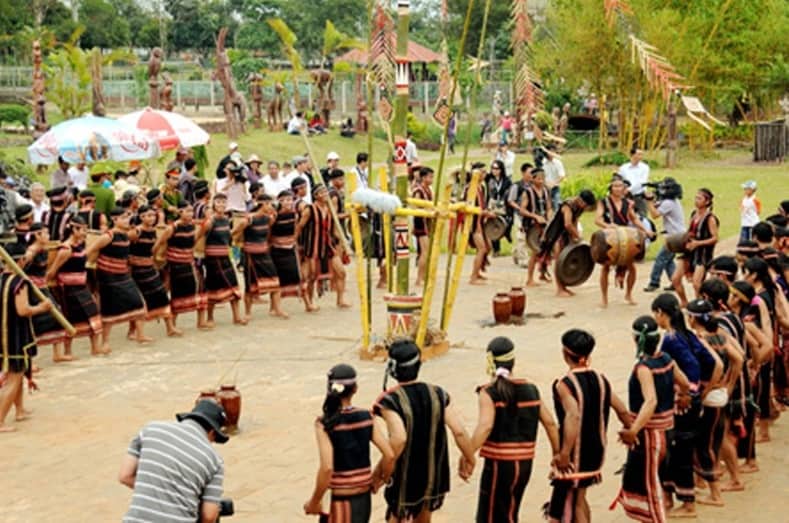
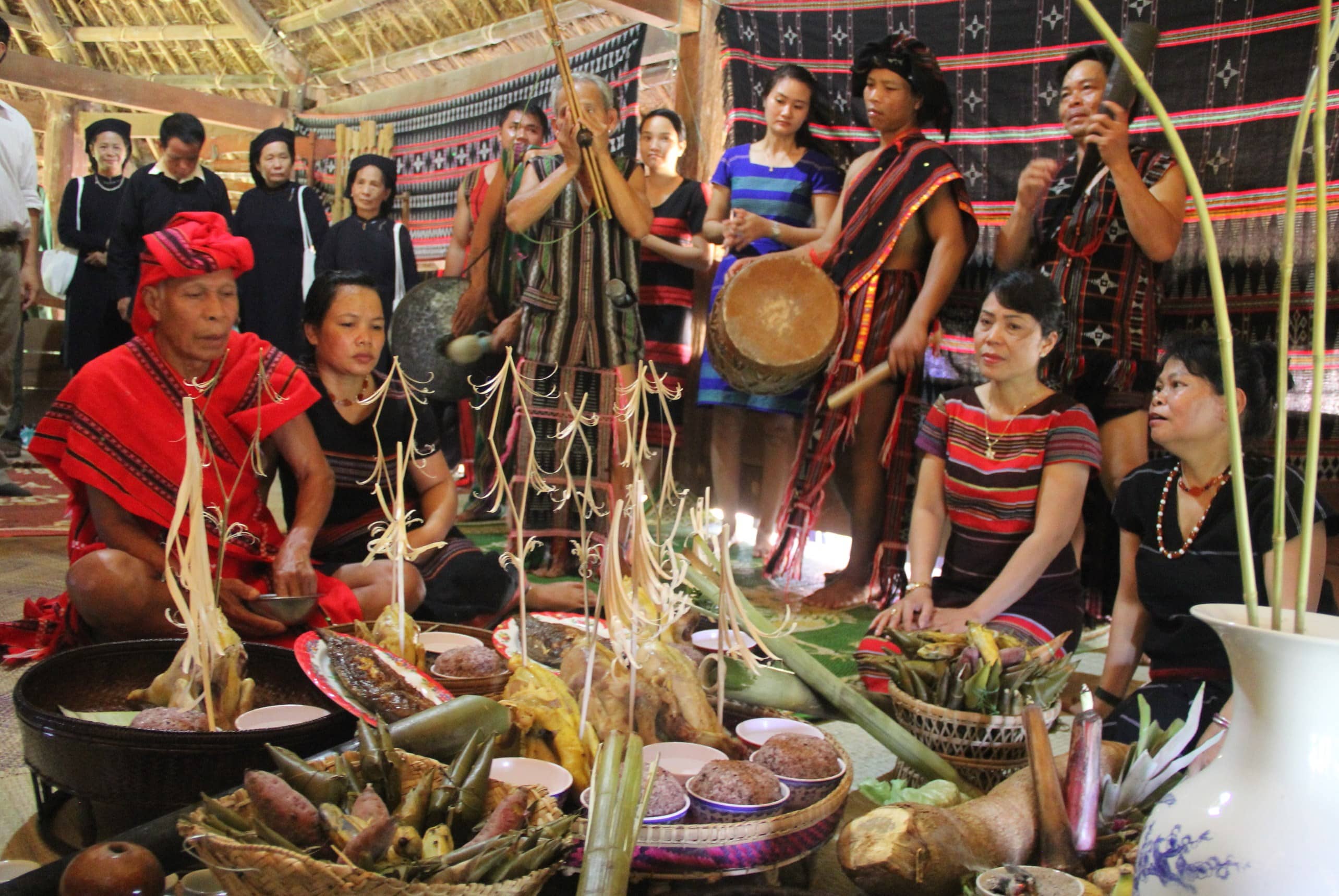
This is also the occasion to show gratitude to their ancestors, to the Rice God, to Giang and an occasion to invite all villagers to share their happiness. This is also an occasion to celebrate a new year and to hope for a happy future. Nowadays this festival lasts only a few days.
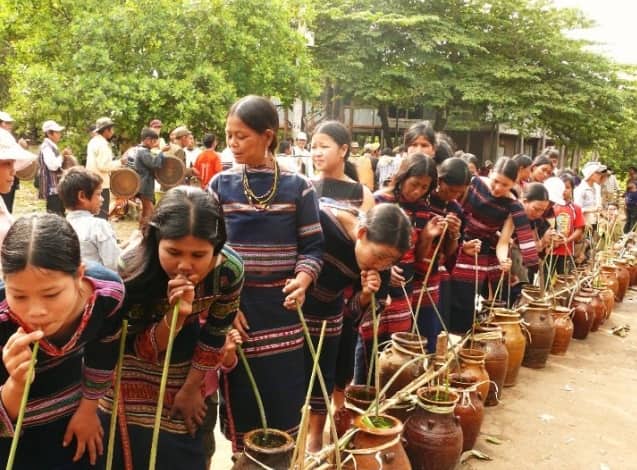
Indigenous people in the Central Highlands in general, Dak Lak in particular, has a unique ritual culture - festivals. It goes throughout the life of each person, from the time of birth in the womb to birth, mature and then return to the ancestors world as worship when pregnant mother, ritual before birth, The worshiping ceremony is called the blowing of the ears, the worshiping ceremony is full of harvesting, the worshiping is full of three seasons, the worshiping is full of seven seasons, the worshiping ceremony is full of 15 seasons, the worshiping ceremony is full (17 rounds) , husband's ceremony, husband's wedding ceremony, health ceremony for young couple, yearly health ceremony of each family, including the rituals of offering new rice.
According to the custom of the Ede, after harvesting the rice, bringing the rice to home, filling up the family, every family is carrying a rice ceremony and offering rice to pray for rice gods to help the landlord always get rice. Next to every house is a new rice ceremony.
The new rice offering is divided into two parts: the "worshiping god" and the "eating new rice". The scale and time of the festival depend on the conditions, productivity harvest after the season of each family, relatives in the village. The unique feature is the new rice eating ceremony organized by each household. Accordingly, the family has a good season, the new meal ceremony is quite stiff, prolonged throughout the morning. When the family offers rice, they invite their relatives in the village to attend the feast, eat, enjoy. The new rice ceremony in crowded villages lasts for a month, with fewer households lasting 2-3 weeks.
Normally, when approaching the new rice offering day, the air is prepared to the end of the village. During this time, in the village Ede people pesto rice pounded from the sun when he grows until hidden behind the mountain. During the preparation process for the festival, every part of the work is almost man-made. From work to prepare wine, slaughter pigs, kill chickens to the burden of water, to cut wood to fire, invite guests. The woman is usually "favored" more, concentrating only on the preparation of bright floral dresses preparing for the festival. The young people in the village are eagerly waiting, to play.
New offerings of rice include pork; Wine; new rice; water; cigarettes; coal stove; The farm equipment (a tree, a plant, an ax) ... After the presentation was finished, the owner will invite experienced worshipers, all people respectfully perform the ceremony for Yang (god ). In the ceremony, the worshipers representing the owner read the vows expressing their gratitude to the gods for a prosperous and prosperous harvest, Yang Bridge for the next crop of rice, maize corn full of houses, full of life, full of warmth.
At the end of the vows, the wanderers waved alcohol at the fire, gongs, stairs, rice store to bless. When the ritual is closed, it is also at the start of the fun-filled night. The housewife was asked to suck the wine first, then to the oldest woman, followed by the elders, the older relative in the first line, the latter in the village. Everybody in the village will eat and drink well until everyone else does not want to have fun again.
When the festival goes on at midnight, some people will play the gong for everyone to listen to. The voice of Aray was also heard in a deep, low voice. At night, a craftsman or village elders in the village said khan on the fire flicker. The accent is as low as, as strong as the waterfall, gentle as the river. The fun lasted until the next morning.
New rice offerings will be organized by each house. The family in the village to eat from one home to the other, sometimes in the village one day 3-4 families eat new rice because these families have the same rice. If the landlord is good to eat a large, very long, all night long, all the people until the drunk.

